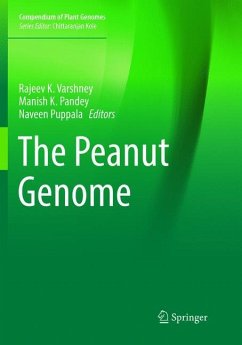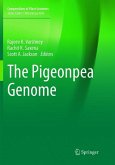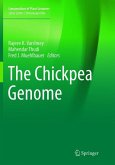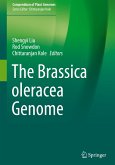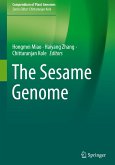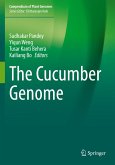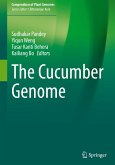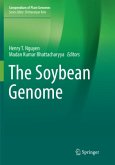This book presents the current state of the art in peanut genomics, focusing particularly on the latest genomic findings, tools and strategies employed in genome sequencing, transcriptomes and analysis, availability of public and private genomic resources, and ways to maximize the use of this information in peanut breeding programs. Further, it demonstrates how advances in plant genomics can be used to improve crop breeding.
The peanut or groundnut (Arachis hypogaea L. Millsp) is a globally important grain legume and oilseed crop, cultivated in over 100 countries and consumed in the form of roasted seeds, oil and confectionary in nearly every country on Earth. The peanut contributes towards achieving food and nutritional security, in addition to financial security through income generation; as such, it is also vital to the livelihood of the poor in the developing world.
There have been significant advances in peanut research, especially in the last fiveyears, including sequencing the genome of both diploid progenitors, and the availability of tremendous transcriptome resources, large-scale genomic variations that can be used as genetic markers, genetic populations (bi- and multiparent populations and germplasm sets), marker-trait associations and molecular breeding products. The immediate availability of the genome sequence for tetraploid cultivated peanuts is the most essential genomic resource for achieving a deeper understanding of peanut traits and their use in breeding programs.
The peanut or groundnut (Arachis hypogaea L. Millsp) is a globally important grain legume and oilseed crop, cultivated in over 100 countries and consumed in the form of roasted seeds, oil and confectionary in nearly every country on Earth. The peanut contributes towards achieving food and nutritional security, in addition to financial security through income generation; as such, it is also vital to the livelihood of the poor in the developing world.
There have been significant advances in peanut research, especially in the last fiveyears, including sequencing the genome of both diploid progenitors, and the availability of tremendous transcriptome resources, large-scale genomic variations that can be used as genetic markers, genetic populations (bi- and multiparent populations and germplasm sets), marker-trait associations and molecular breeding products. The immediate availability of the genome sequence for tetraploid cultivated peanuts is the most essential genomic resource for achieving a deeper understanding of peanut traits and their use in breeding programs.

